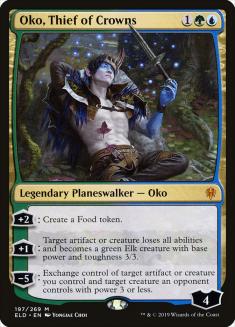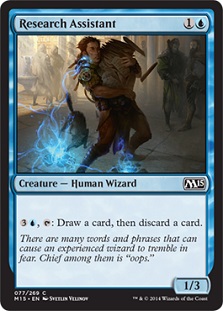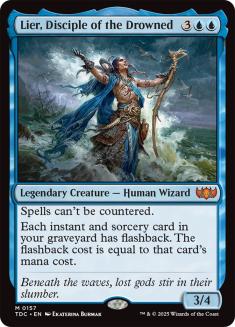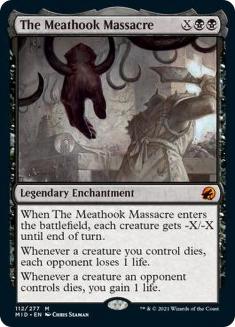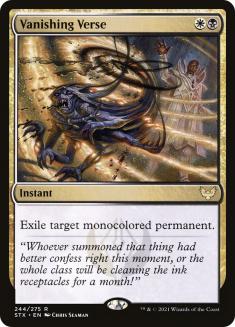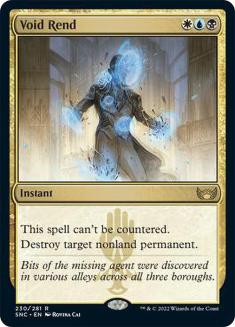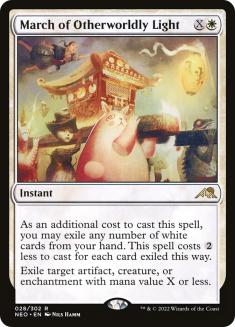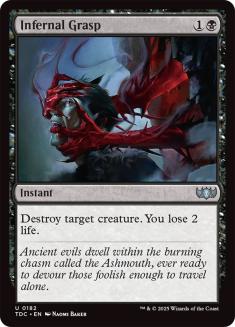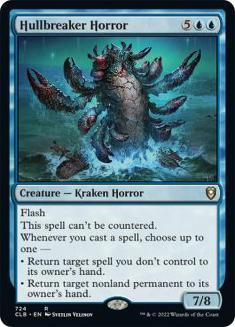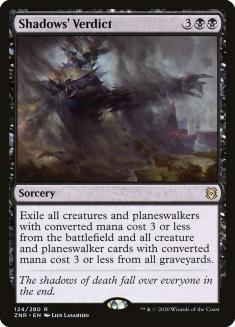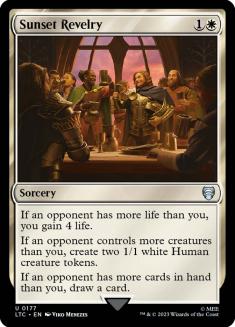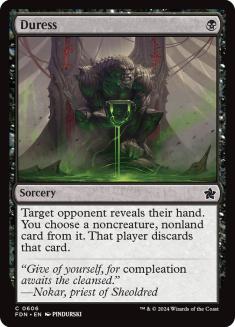Modern has consumed most of my time crafting content, playtesting decks, and traveling to tournaments these last few years. There are other great ones out there, like Pioneer, which are next in line to attract this old wizard’s attention. Pioneer is the format of the upcoming Pro Tour and the official return to paper Magic by Organized Play. Luckily, the same Azorius Control deck I love in Modern has been a viable choice in Pioneer.
With my focus on Modern and Pioneer, I had little interest in the recent championship on MTG Arena. It falls flat in bringing the excitement that the real Pro Tour brings, and the formats have been largely given up on by the creators of the game. The lack of commitment and interest of Standard brings a personal sting to me, as that has been my favorite format since, I started playing the game. There is something special about the yearly-rotating model of competitive play that Standard brought, bringing in new eras of dominance and a revolving metagame that keeps players on their toes.
Players who have been in the game long enough can reminisce about the Standard formats they loved, and those they despised. The reasons varied from player to player, with everyone’s experiences being valid. The Standard formats where Sphinx’s Revelation was legal brought me unprecedented success on the SCG Tour, while others loathed that style of gameplay and could not wait for it to pass. The point being it did eventually pass, then we saw similar success in future aggro and midrange strategies. It was a no-brainer for years; each split tournament was half Standard, half something else.
All it took was a year or two of incompetence to destroy Standard’s legacy of greatness.
Standard’s Stolen Crown
It would be easy to blame everything on Oko, Thief of Crowns, but the trouble goes much deeper. To get to the root of the problem, I would have to craft a multi-article series. As fun as that would be, I would like to propose an easy solution to the Standard problem.
Decreeing Pioneer as the host of the first paper Pro Tour in years was a smart move and has directly created excitement around that format. I see more brews, card purchasing, and playtesting in Pioneer than I have seen in years. Many of my colleagues believed it was a dead format, especially with the introduction of Historic and Alchemy on MTG Arena. There is a competition for dominance of the “best format” between Standard and Modern. Because of Wizards of the Coast (WotC) making this Pro Tour Pioneer, fans of that format let out a sigh of relief. Pioneer isn’t going anywhere now and will continue to see support from fans and the company.
Saving Standard
If Standard is to be saved, the next Pro Tour should showcase it as the primary format.
Making Standard the official format for the next Pro Tour (and feeding qualifiers) would display the same faith and support that we see for Pioneer. The wildcard here is the effectiveness of Studio X for those future, Standard-legal sets. If we see fiascos in card strength, must-ban cards, imbalance between the archetypes, and/or a bland, linear format, not even this solution will revive it.
Standard is rarely perfect; however, it long remained the format played universally around the world. My hope is that WotC gets behind it again, local game stores catch the same fever, and we can get back to the excitement that new sets bring us. Instead of nabbing one card for Commander here, or a card every three sets for Modern there, every decent card has potential to see competitive play. The Streets of New Capenna Championship did not spark this for most people, but it did give us a feel for the current competitive metagame. Using this tournament, and some recent Magic Online (MTGO) results, I decided to dive into Standard in the same way I did the other formats.
Creatures (2)
Planeswalkers (4)
Lands (26)
Spells (28)

Looking to Lier
My first attempt at Esper Control in Standard revolved around Lier, Disciple of the Drowned. I spent hours trying to get it to work against the current metagame, but it underperformed in a true control shell. It is still a broken card that can dominate in many different archetypes built around it. The issue became Esper Control playing subpar cards in the main to protect it and not being able to defend against problematic spells with blue disruption.
Saw It Coming is no Counterspell, but it does defend well enough in Standard. Without it, I was unable to protect planeswalkers, stop opposing haymakers, and stay ahead in the card advantage race. Being able to eliminate spells, which produce advantages for the opponent on the battlefield, while they are on the stack is where I want to be to start this new format off. If I ever head back to the world of Dimir Control, Lier will still be my go-to. For now, Esper Control will utilize the best removal, counters, and win conditions without those specific deckbuilding constraints.
Sweepers
The removal package is what makes Esper Control stand out from a two-color competitor. Having access to the two best sweepers in Standard, The Meathook Massacre and Farewell, is an advantage worth building around. I love Doomskar and think it is still a great card; however, Farewell has proven to be a game-ender against the full spectrum of creature decks out there. Having the ability to wipe out all non-planeswalker permanents that threaten you is something I am not used to. I rarely played the Planar Cleansing-style cards, as better options were often available. It also hit planeswalkers, which I have historically relied on to win. Farewell takes care of business in a superior way, and it will be difficult to put this card down in Standard.
The Meathook Massacre is as powerful as Farewell in a different way. As early as Turn 3, it can wipe out creatures with low toughness on the opposing side of the battlefield. Not only does it remove threats, but it also provides significant lifegain advantages the moment it arrives. This sweeper sticks around on the battlefield and continues to gift valuable life points as the game progresses. It feels weird not to use some of the other powerful sweepers in Standard, but these two have carried the workload with ease without needing help.
Void and Verse
Outside of sweepers, the other removal spells in Esper Control are superb. I have cheered the arrival of Vanishing Verse and Void Rend on this website in great detail and my feelings have not changed. Vanishing Verse is still the best removal spell Standard has seen in years.
I lived through the years of Doom Blade being called “too good for Standard,” which is comical when looking at this spell. Not only does it handle most early-game creatures, it also easily lays out the best planeswalkers and enchantments in the current metagame. From a Wedding Announcement to The Wandering Emperor, Vanishing Verse has your back for only two-mana.
Void Rend is particularly good, just not as busted as Vanishing Verse. It costs an additional mana and has a more difficult cast, but it can hit more targets. The uncounterable clause can come in handy in Standard, and having access to removal that hits multicolor threats is important. These instant-speed removal spells complement the playstyle of Esper Control and allows the deck to play at more of a flash speed. Outside of The Meathook Massacre, Farewell, and one copy of Bloodchief’s Thirst, the entire game can be played on the opponent’s turn.
Other Removal
The other removal spells in the deck provide early-game opportunities to destroy creatures, while being useful in the late-game. March of Otherworldly Light, Bloodchief’s Thirst, and Infernal Grasp give Esper Control the versatility to handle a variety of threats, with little drawback.
It is likely that I increase the number of March of Otherworldly Light, but I found it to be slightly lackluster in early testing in multiples. Unlike in older formats, I am more unwilling to drop card advantage in the current Standard metagame unless I have no other option. Losing two life is a much more reasonable cost than a card, which is why there are more copies of Infernal Grasp in the deck. Having access to more exile effects, as well as it hits more targets, is why March of Otherworldly Light may have a larger role in the future.
Win Condition
The win condition of Esper Control is what excites me the most. Hullbreaker Horror has been my favorite creature to play in newer control decks, as it is hard to kill and quickly ends the game. It hits like a truck, while protecting itself and the controller from harmful spells.
Consider joins the deck as a low-cost cantrip early and a late-game protection spell for Hullbreaker Horror. It may be unnecessary to have protection in this metagame, with very few decks having the capacity to deal with a creature of that size. Consider has had a bad rap since its arrival on the scene, even though Opt saw play. It is difficult to find space for traditional cantrips in the newer formats, as all extra slots of that nature are filled by lands that have spell modes. Still, I have enjoyed using Consider in all stages of the game, so it will remain as part of the inaugural list.
The Sideboard
Rounding out Esper Control is the sideboard that was built to take on the top decks of the format. The Meathook Massacre, Ray of Enfeeblement, Shadows’ Verdict, and Sunset Revelry all assist against decks trying to swarm us out of the game. Each card helps pave the way for The Wandering Emperor to land safely on a clean battlefield, or for a Hullbreaker Horror to crash onto the scene.
This version of Esper Control has fewer win conditions than most of my lists; however, many veteran control players have operated with less. I was never an Elixir of Immortality / Nephalia Drownyard win condition type of guy. My control decks sacrifice some power for victory expediency. The sideboard reinforces that plan, ensuring that there is enough removal in Game 2 and Game 3 prior to a Hullbreaker Horror appearance.
The rest of the sideboard is geared toward slower decks, adding more blue disruption and Duress. Duress is not the card it used to be, especially with Lier still floating around. It is difficult to depend on a card like that on its own, but it is extremely powerful with blue disruption backing it up.
Knowledge is power and having information on the opponent’s hand is something control can use to its advantage far more effectively than other archetypes. With a potential Renaissance of Standard approaching, Esper Control will be my weapon of choice.


